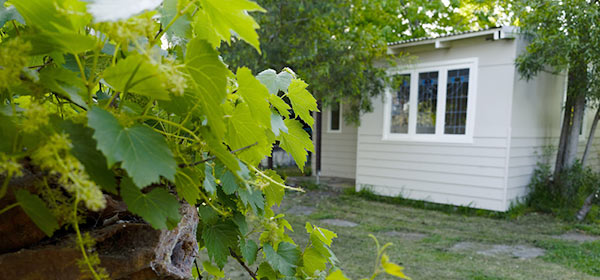Joan wants to help her son and daughter-in-law by contributing to the purchase of a property with a separate granny flat, but she’s worried about how it will affect her Age Pension.
Q. Joan
My daughter and son-in-law are moving to the coast and plan for me to move with them and live in a self-contained unit on their property. It won’t be on a strata title and I won’t be paying rent, but I will contribute to the purchase of the property and refurbishment of the unit. As I’m on a full Age Pension I’m concerned that my income will be affected by my change in circumstances. Will this be the case?
A. Firstly, people are often confused by the real estate definition of a granny flat and that used by the Department of Human Services. A granny flat interest defined by Human Services covers all types of accommodation for which:
- an individual ‘pays’ for the right to live there for the rest of their life, and
- the accommodation is in a private residence and is to be the individual’s principal home.
Granny flat interest rules are designed to recognise arrangements made by families to support elderly people and the rules do not have any test on age or relationship, nor do they put a measure on the support provided. The rules do, however, reduce the effect of gifting to make the costs involved in securing the right to live in the accommodation for life less prohibitive.
The value of a granny flat interest is simply the amount paid for that interest, be it $1 or $1 million, as long as the person:
- transfers the title of their home, or
- pays for the construction and fit-out of premises, or
- purchases property, or contributes to the purchase of a property, in another person’s name in return for a life interest or the right to live in that accommodation for life.
You may be subject to a reasonableness test if you have transferred assets in addition to the above. If the amount of money or value of property exchanged is more than the value of the granny flat interest, the excess is considered to be a deprived asset and, under gifting rules, could affect the amount of pension you are paid.
Human Services also needs to know what you transferred to secure the granny flat right, in order to determine if you have deprived yourself of assets and to assess whether or not you are a homeowner or non-homeowner.
Whether you are assessed as a homeowner or non- homeowner will determine:
- if the amount you paid is considered an asset
- which asset threshold is applied to your payment, and
- whether you’re entitled to Rent Assistance.
The difference between the homeowner and non-homeowner asset test threshold is called the extra allowable amount and is compared to your entry contribution*. The table below shows how this affects your entitlement:
| Category | Entry contribution is more than extra allowable amount | Entry contribution is equal to or less than extra allowable amount |
| Homeowner | Yes | No |
| Entry contribution included in asset test? | No | Yes |
| Eligible for Rent Assistance? | No | Yes, if you pay enough rent |
*the entry contribution is the amount you actually paid, or the value of the granny flat interest if assessed under the reasonableness test
If your assets exceed the test threshold, then your Age Pension will be reduced at the rate of $3 for every $1000 you are over the threshold.
Hopefully this helps you to determine how your Age Pension may be affected, but you can also contact Human Services on 13 2300 to discuss your individual circumstances.
Also, while you may have full trust in your daughter and son- in-law, you should consider asking a qualified professional to look over the legal aspects of any agreement.
MORE
Department of Human Services
Asset test tables
Department of Social Services

